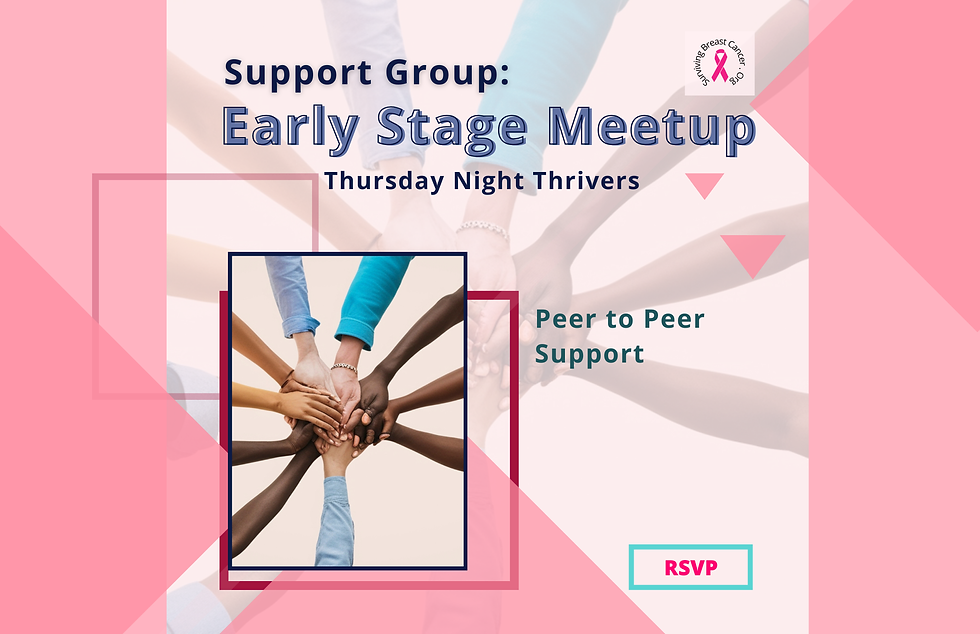The Impact of Diet and Nutrition on Breast Cancer Prevention and Recovery
- Surviving Breast Cancer

- Jan 14, 2024
- 2 min read
Updated: Oct 7, 2025

Breast cancer is a complex disease influenced by various factors, including genetics, lifestyle, and environmental aspects. Emerging research suggests that dietary choices and nutrition play a pivotal role in both preventing the onset of breast cancer and aiding in the recovery process.
Understanding the Link Between Diet and Breast Cancer
Numerous studies indicate a significant correlation between dietary habits and the risk of developing breast cancer. While no specific food guarantees complete prevention, certain dietary patterns can potentially reduce the risk:
Balanced Diet: Emphasizing a diet rich in fruits, vegetables, whole grains, lean proteins, and healthy fats can contribute to overall health and possibly reduce the risk of breast cancer.
Healthy Fats vs. Saturated Fats: Consuming healthy fats found in avocados, nuts, seeds, and olive oil while minimizing saturated fats from red meat and processed foods can be beneficial.
Limiting Alcohol Intake: Studies suggest a clear link between increased alcohol consumption and an elevated risk of breast cancer. Reducing alcohol intake or avoiding it altogether is recommended.
Maintaining a Healthy Weight: Obesity or excess body weight, particularly after menopause, can increase the risk of breast cancer. Regular exercise and a balanced diet help in weight management.
Nutrition During Breast Cancer Treatment
During breast cancer treatment, maintaining proper nutrition becomes crucial to support the body through therapies that can impact appetite and overall health:
Adequate Protein Intake: Protein is essential for tissue repair and healing. Incorporating lean proteins such as poultry, fish, legumes, and dairy helps maintain muscle mass.
Focusing on Whole Foods: Prioritize a diet rich in whole grains, fruits, and vegetables to ensure a diverse array of nutrients and antioxidants.
Hydration: Staying hydrated is vital, especially during treatments that might cause dehydration. Aim for adequate water intake and avoid sugary beverages.
Managing Side Effects: Some foods might exacerbate treatment side effects. For instance, ginger can help alleviate nausea caused by chemotherapy.
Role of Phytochemicals and Antioxidants
Certain nutrients, particularly phytochemicals and antioxidants present in plant-based foods, exhibit potential in aiding breast cancer prevention and recovery:
Cruciferous Vegetables: Vegetables like broccoli, kale, and cauliflower contain compounds believed to have protective effects against cancer.
Berries and Citrus Fruits: Rich in antioxidants, berries and citrus fruits may help reduce oxidative stress and inflammation.
Omega-3 Fatty Acids: Found in fatty fish like salmon and walnuts, omega-3s possess anti-inflammatory properties.
Conclusion: Harnessing the Power of Nutrition
While no single food or nutrient guarantees breast cancer prevention or recovery, adopting a balanced and healthy diet can contribute significantly to overall health and well-being. Consultation with a healthcare professional or registered dietitian is crucial to creating a personalized nutrition plan that aligns with individual needs during breast cancer prevention and treatment.












